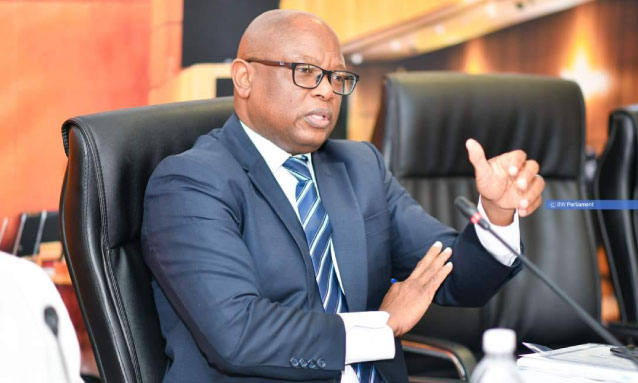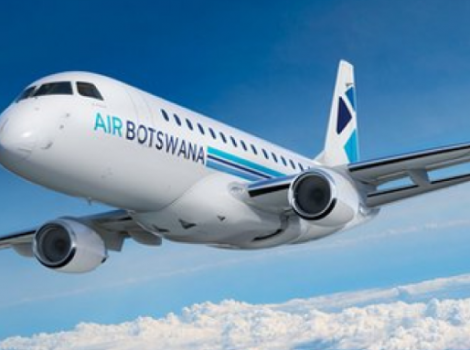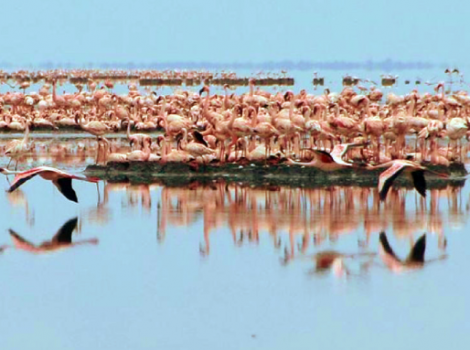
11 December 2024
With foreign-owned entities dominating Botswana’s tourism sector and leading the repatriation of revenue, government has revealed that it will tighten legislation and enforcement measures to ensure that all revenue earned by tourism activities remains in the country.
Currently, much of the billions of pula flowing into the tourism sector are in the hands of foreign-owned companies, meaning a lot of it is repatriated out of the country. The sector contributes billions of pula to the overall economy. The Minister of Environment and Tourism, Wynter Mmolotsi, told Parliament this week that his ministry is aware of revenue repatriation from the tourism sector.
He added this occurs when taxpaying entities transfer money earned overseas back to the country where they are based.
“My Ministry advocates that all revenue generated from tourism licensed operations should reach Botswana and be reported accurately in Botswana for the following reasons; to minimise leakages, strengthen the local economy through the circulation of money in the local economy, increase local investments, reduce the possibility of tax evasion,” Mmolotsi said.
To remedy this, he disclosed that his ministry has kick-started the process of reviewing the Tourism Act of 2009 with the intention for this to be considered by Parliament during the August 2025 sitting.
He further said the aim of this review is to provide a legislative instrument that compels tourists to pay in full in Botswana, among others. Mmolotsi was responding to a question from Tati East Member of Parliament (MP), Tapologo Furniture. Furniture had asked the minister whether he was aware of revenue repatriation from the tourism sector and to specifically explain what he intends to do to remedy the situation. In response, Mmolotsi said government expects that mandating all payments to be made in local currency will prevent cash outflows while maximising the economic benefits of tourism for the local population.
“In addition, stiffer fines for non-compliance and heightened monitoring of financial activities will be enforced to dissuade any attempts to circumvent the new requirements.
Furthermore, my ministry will finalise the Tourism Leakages Study by January 2025, which aims to identify areas of leakages within the tourism sector as well as mitigation measures.”
“That notwithstanding, my ministry will continue to collaborate with stakeholders such as the Ministry of Trade and Ministry of Finance in mitigating revenue repatriation in the tourism sector,” he further pointed out.
The fact that foreign-owned safari companies or non-indigenous Batswana dominate the country’s tourism industry has not only led to the repatriation of revenue but it has also led to the domination of management positions by expatriates and lower salaries for citizen workers. Hence, in April 2021 Parliament approved the revised Tourism Policy. Before Mmolotsi announced this week that government will review the Tourism Act of 2009, in 2021 there were questions about whether the then-new Tourism Policy would finally empower Batswana.
For decades, Batswana had been piling pressure on policymakers to open up the industry to them and enable citizens to access opportunities in tourism beyond just mere employment. Before reviewing the policy, a process that took 13 years of planning, the government admitted that the first Tourism Policy developed in 1990, had outlived its usefulness considering the competitive tourism environment Botswana operates within.
Therefore, the Ministry of Environment and Tourism felt it became necessary that it be reviewed to align it with the current developments and trends in the tourism industry. The policy called for a legislative arrangement indicating that the Botswana Tourism Organisation Act (2009) is among the various pieces of legislation and policies in Botswana that affect the tourism sector and if not harmonise, could hamper competitiveness in the tourism sector.
“In view of the dynamic and complex nature of the tourism sector, it is therefore necessary to come up with measures to strengthen the legal and regulatory environment for tourism.
There is also a need for a multi-sectoral consultative mechanism for the engagement of other key players in order to harmonise the legislation and ensure effective and efficient delivery of services in the tourism sector,” read the policy.
The policy also acknowledged that there is limited citizen participation in tourism where prime tourism opportunities such as prime lodges and higher-end hotels remain in the hands of a few dominant operators and therefore citizen participation in tourism is for lower investments.
“Furthermore, joint ventures between citizens and foreigners have been extremely limited. Very few tourism-related companies have floated their shares for wider citizen participation.
Successful true partnerships and joint ventures between communities and tourism business operators are few and far between,” stated the policy.
But in March this year, the late and former Environment and Tourism minister, Dumezweni Mthimkhulu, revealed that there was a rising interest among Batswana in the tourism business. He revealed that as of the end of January 2024, the Ministry had licensed 3,236 100% citizen-owned operators, 286 joint ventures, and 296 non-citizen-owned enterprises compared to a target of 250 per year. The late Mthimkhulu highlighted then that the surge in interest stimulated employment in the sector.
Source: https://www.mmegi.bw/news/govt-to-stop-revenue-repatriation-from-tourism/news



